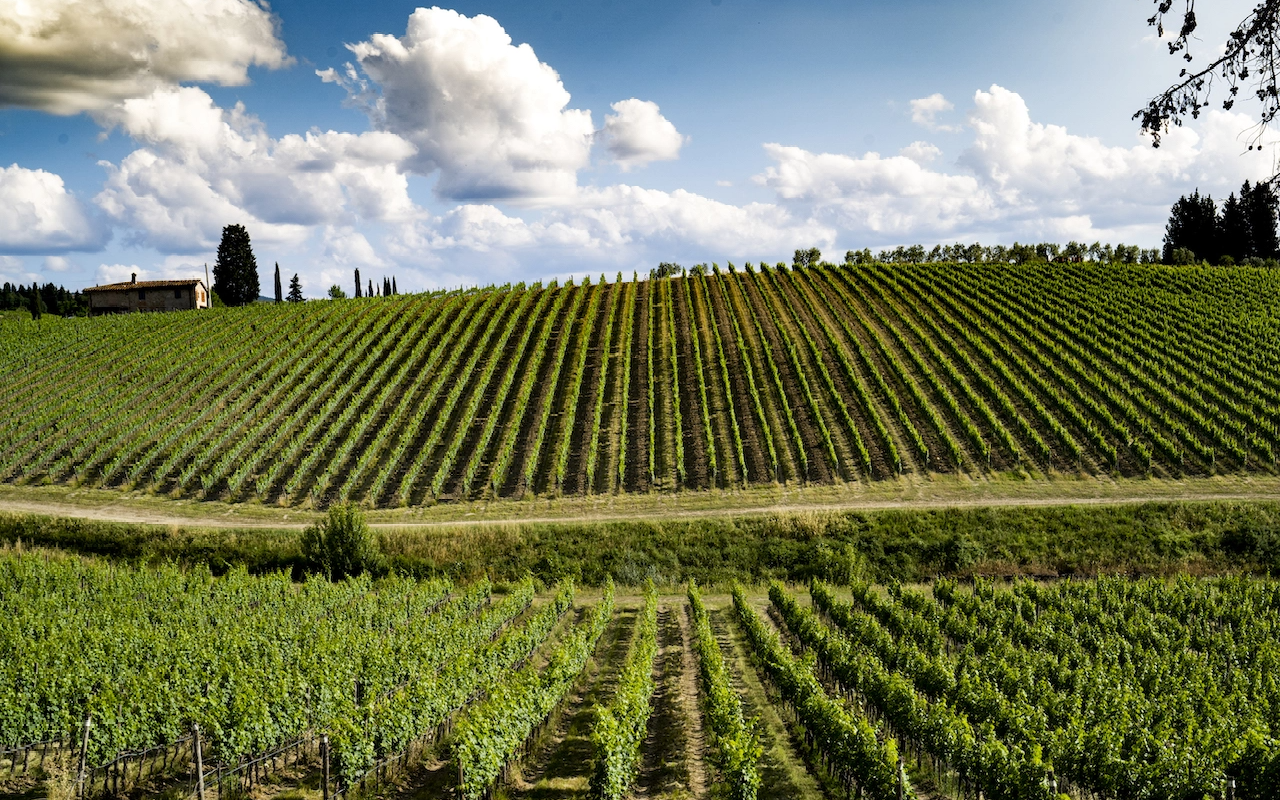
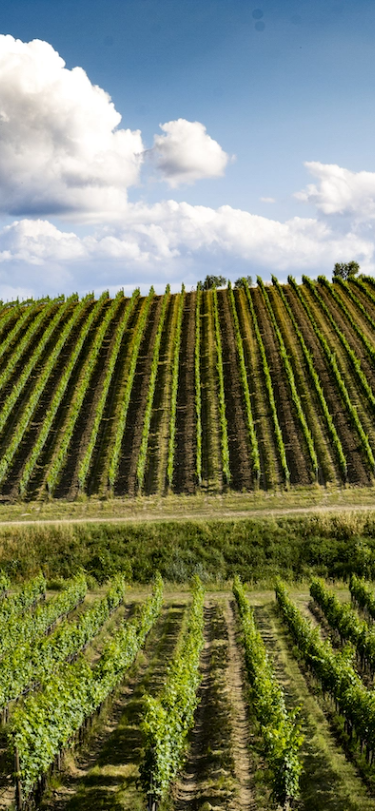
WE CULTIVATE A SUSTAINABLE COMMUNITY
SUSTAINABILITY REPORT
-
Letter
-
Ruffino
-
Value
-
Sustainability
-
Management
-
Guardianship
-
Connections
-
Projects
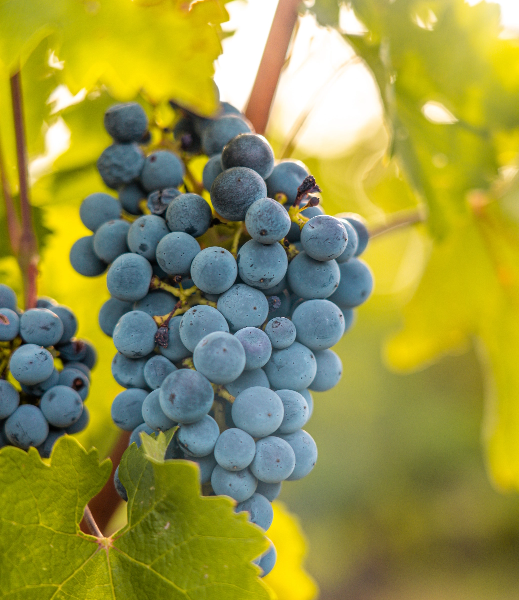
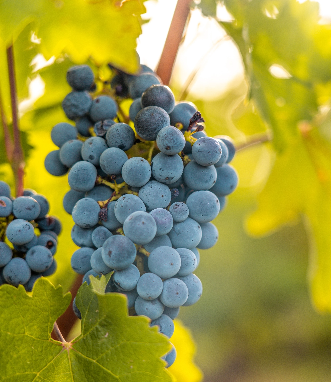
LETTER TO STAKEHOLDERS
Compiling the Sustainability Report is always a very important time for Ruffino, which allows us to verify the progress we are making in achieving our goals and assessing our concrete commitment to these topics.
LETTER TO STAKEHOLDERS
Compiling the Sustainability Report is always a very important time for Ruffino, which allows us to verify the progress we are making in achieving our goals and assessing our concrete commitment to these topics.
It is a time that incorporates wider contemplation about whether we are doing enough and, more importantly, whether we are working with the urgency that the situation requires. These issues must be important to us, but above all we must feel their urgency. The environmental, climatic and social situation around us is changing much faster than we imagined, which means that we must react at the same speed, doubling down on our commitment. Up until now, being sustainable meant working in such a way to reduce, or even zero, our negative impact on the environment and society. Now, instead, we are required to move things up a gear: to have a positive impact, to strive to combat climate change and to seek to improve social equity by eliminating the gender gap and improving the wellbeing of our employees, suppliers, clients and the communities that interact with us. In order to reduce the disruptive effects of these changes, a change of pace and an overhaul of the ESG strategy is required right now. This is why we implemented eco-design projects for our products a few years ago. The aim is to reduce the impact of our materials by working on bottles and packaging to reduce the use of unnecessary materials as much as possible, while also lowering the weight. The results have been truly encouraging.
For years, we have been incorporating sustainability as an operational strategy, laying the foundations to manage this difficult challenge. We started mapping the soil and vineyards back in 2011, something that we have maintained and holds us in good standing today. Not only have we been capable of irrigating the vineyards when required, but we have also reduced water usage as much as possible in order to ensure that water is available as a vital resource to local communities. As we have said in the past, as a market leader we have the moral duty to show the way as well as highlighting a new mindset of doing business, now more than ever in these fragile times, when the effects of climate change have become especially intense and unpredictable. This is the time to be bold and speed up our progress. We strongly believe that we are doing this every single day. Last but not least, I would like to thank our long-standing partners and suppliers, who feel the same need and who are pursuing progress similar to ours. Together we are certain that we will achieve not only our goals ahead of schedule, but also encourage our sector and other industries to accelerate their sustainable efforts.
CHAIRMAN AND CEO
Sandro Sartor
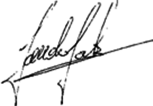
WORLD OF RUFFINO
Our entire world is encapsulated in each of the 28 million-plus bottles of wine that we produce and sell. With a 150-year history rooted in the Tuscany and Veneto regions, we are committed to a future of responsible and sustainable growth.
WORLD OF RUFFINO
Ruffino was founded in 1877, in Pontassieve, in the heart of Chianti due to the amazing intuition of two cousins, Ilario and Leopoldo Ruffino. Today, our history is known all over the world. As part of the Constellation Brands Group, Ruffino produces over 28 million bottles from 585 hectares of vineyards across ten estates, bringing a distinctive touch of Italian style and flavor to tables in 89 countries.
MARKETS SERVED
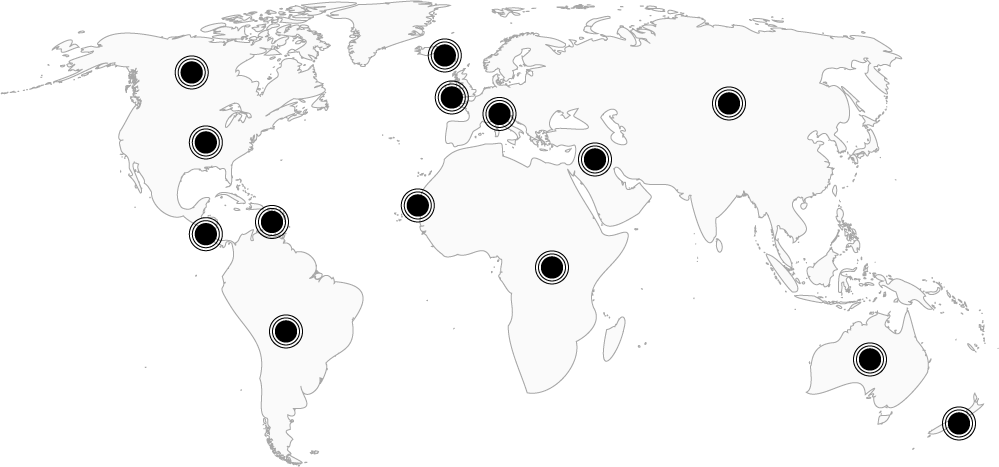
- Albania
- Andorra
- Austria
- Belgio
- Bulgaria
- Croazia
- Cipro
- Danimarca
- Estonia
- Finlandia
- Francia
- Germania
- Irlanda
- Italia
- Lettonia
- Lussemburgo
- Malta
- Norvegia
- Paesi Bassi
- Polonia
- Portogallo
- Serbia
- Slovenia
- Spagna
- Svezia
- Svizzera
- Ungheria
- Regno Unito
- Islanda
- Stati Uniti
- Colombia
- Britannica
- Canada
- Anguilla
- Antigua e Barbuda
- Bahamas
- Barbados
- Belize
- Isole Cayman
- Costa Rica
- Repubblica Dominicana
- Grenada
- Guatemala
- Haiti
- Honduras
- Giamaica
- Messico
- Panama
- Porto Rico
- Saint Lucia
- Trinidad e Tobago
- Isole Turks e Cicos
- Brasile
- Colombia
- Paraguay
- Pery
- Egitto
- Etiopia
- Mauritius
- Australia
- Nuova Zelanda
- Bahrian
- Israele
- Giordania
- Qatar
- Turchia
- Emirati Arabi Uniti
- Armenia
- Azerbaigian
- Bangladesh
- Cina
- Guam
- Hong Kong
- India
- Indonesia
- Giappone
- Malesia
- Mongolia
- Filippine
- Singapore
- Korea del Sud
- Sri Lanka
- Taiwan
- Ucraina
- Vietnam
THE ESTATES
Our Tuscan estates extend across more than 1,000 hectares, with approximately 395 hectares under vine.
The Poderi Ducali Ruffino estates in Veneto extend across approximately 190 hectares, are fully organic and now boast a total production capacity of about 140,000 hectoliters.
4
Companies
240
People
+1,200
HECTARES OF LAND, MORE THAN 585 UNDER VINE
9
ESTATES: 7 IN TUSCANY AND 2 IN VENETO
Plus a bottling plant in Tuscany (Pontassieve)
4,307
Tons of grapes managed
37
Labels
28,309,228
Bottles of Wine
89
Countries Served
123,929,798
EURO Value Produced By The group In FY 2023
MISSION
AND VALUES
Our role revolves around crafting fine wines, a process that involves cultivating flavor, fostering culture and promoting social togetherness. Our daily mission centers on the pursuit of making products that are beautiful, good and sustainable, renewing the values shared by our people in everything we do.

Integrity
High ethical and moral standards, always acting correctly

People first
Respect, inclusive environment, teamwork and success, helping the community

Focus on quality
Passion for products and commercial activities, commitment to quality, continuous improvement

Client focus
Understanding and anticipating client needs, exceeding expectations

Entrepreneurial spirit
Shared management, promoting innovation, responsibility, fast and flexible implementation
Values
Vision
Mission
Values

Integrity
High ethical and moral standards, always acting correctly

People first
Respect, inclusive environment, teamwork and success, helping the community

Focus on quality
Passion for products and commercial activities, commitment to quality, continuous improvement

Client focus
Understanding and anticipating client needs, exceeding expectations

Entrepreneurial spirit
Shared management, promoting innovation, responsibility, fast and flexible implementation
RUFFINO CARES
Sustainability is an essential part of our idea of development.
In 2018, we introduced Ruffino Cares, a sustainability strategy integrated into our business
that encompasses 4 action areas.
Ruffino Cares:
a heart as strategy
The four Ruffino Cares pillars - environmental sustainability, responsible drinking education, commitment to others, diversity and inclusion - permeate our business model and represent a constant drive to improve the Group’s production processes and offering.
Selling wine is business; promoting sustainable growth goals has a deeper purpose.
Strategic sustainability
In FY23, 29% of total investments was allocated to ESG.
ACTION AREAS AND SUSTAINABILITY INVESTMENT PLAN
Action Areas
Energy
Efficiency
Converting Company Vehicles (Electric)
Preventing Pollution
Conserving Biodiversity
Renewable
Energy
Sustainable
Agriculture
Water
Management
Health
& Safety
Investments
SHARED RESPONSIBILITY: CONTRIBUTING TO SUSTAINABLE DEVELOPMENT
THE IMPORTANCE OF DIALOGUE: THE INVOLVEMENT OF RUFFINO STAKEHOLDERS TO IDENTIFY STRATEGIC PRIORITIES
COMMUNICATION AND PARTICIPATION METHODS
Communication and participation methods
Channels of Communication
Stakeholder
Communication and participation methods
Dedicated projects, Specific meetings, Partnerships with Universities, Ruffino Cares scheme
COMMUNITIES
AND INSTITUTIONS
EMPLOYEES
Piazza Ruffino, Publication of Company Code of Conduct and Ethics, Sharing Policies, Training, Dedicated Meetings
Regular financial reports, Sustainability Report
SHAREHOLDERS
SUPPLIERS
Sharing Code of Conduct and Sustainability Guidelines for Suppliers, Sharing Agricultural Best Practices Handbook, Site Visits, Involvement in Grower Project, Contracts
Website, Sustainability Report, Vivere di Gusto Magazine, Interviews and talks about Sustainability
MEDIA
Clients
Website, Marketing, Sustainability Report, Vivere di Gusto Magazine, Estate Visits, Social Media, Press Activities, TV Campaigns
Ongoing collaborations with UIV and Confagricoltura Firenze and Siena, Membership to the Italian Professional Association for the Environment and Safety
PROFESSIONAL
ASSOCIATIONS
TRADE
ASSOCIATIONS
Participation in Wine In Moderation, Collaboration with the Prosecco Consortium for the Sustainable Consortium Project, Members of Federvini and Unione Italiana Vini
Open Days at universities, Partnerships with Universities, Specific section on the website
NEW TALENT
CBI COLLEAGUES
Sharing the 2030 Strategic Plan, Specific Projects and Meetings, Group Analysis
ENVIRONMENT
Protect the environment and its biodiversity through the use of sustainable practices, converting to organic, adopting precision viticulture and the informed use of resources, adjusting to climate change through innovation and digitalization for a better-informed protection of environmental resources and the land.
RESPONSIBLE DRINKING
Encourage responsibility and moderation in drinking through recreational and educational campaigns aimed at providing information about the harm caused by alcohol abuse and the sociocultural value of responsible drinking.
DIVERSITY AND INCLUSION
Encourage an inclusive culture characterized by a diversity of backgrounds and mindsets, which reflects our consumers and the communities in which we live and work, and to which we all feel we belong.
COMMITMENT TO OTHERS
Support local communities through initiatives aimed at local excellence, associations, the weakest members of society and those in need.
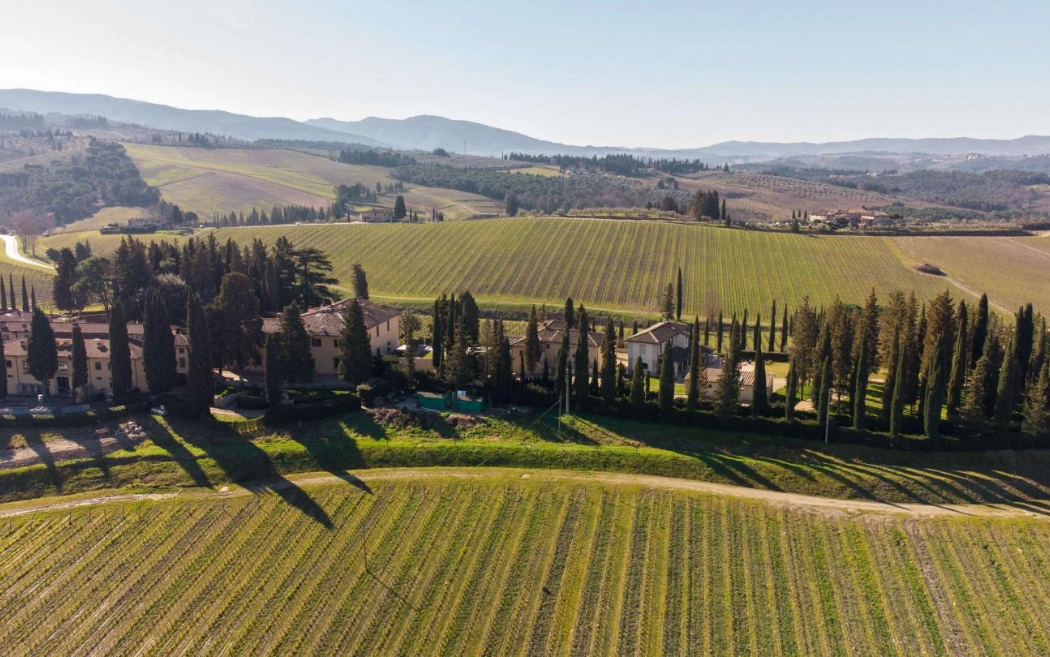
Management
Together, we aim to develop sustainable growth within the territories, based on economic models that foster progress in terms of economy, society and the environment, in line with the priorities collectively identified with stakeholders.

Management
MATERIAL TOPICS COVERED
- Preserving biodiversity and protecting vineyard landscapes
- Naturally regulating processes and gradual elimination of chemical substances
- Energy management
- Water management
- Waste and wastewater management
- Climate change
- Creating sustainable value over time
- Certified sustainability
SDG




67%
WOMEN
BOARD MEMBERS
98%
ECONOMIC VALUE
GENERATED
Distributed among stakeholder
MAY 2023
UPDATING THE COMPANY CODE
OF CONDUCT AND ETHICS
0
Corruption cases confirmed
in the last three years
100%
Of the board
of directors and employees
who use computers received
training
73%
of employees received training about
Anti-corruption policies and
procedures
THE ROAD TO TPM
(TOTAL PRODUCTIVE MAINTENANCE)
TPM - PILLARS
| 5S methodology | |
|---|---|
| Performance Control System | |
| FOCUSED IMPROVEMENT | Support continuous change to eradicate losses and increase production efficiency. Guide the teams in structuring objectives and improvement interventions, endorsing their strategy and results. |
|
|
|
| AUTONOMOUS MAINTENANCE | Act daily, in safety, with the aim of increasing the autonomy of the operators in the effective and efficient management of production machinery, through the development of knowledge, management methods, maintenance and inspection techniques. |
|
|
|
| PROFESSIONAL MAINTENANCE | Eliminate breakdowns and keep the systems efficient, guaranteeing their safety and reliability over time. Growth and technological innovation aimed at constant prevention and energy saving. |
|
|
|
| QUALITY MANAGEMENT |
Control process and components to have zero defects. |
|
|
|
| EARLY EQUIPMENT MANAGEMENT | Support the design phase of new investments by capitalizing the experience of the various functions in order to respect the estimated times and costs and reach the expected performance. |
|
|
|
| TRAINING & EDUCATION |
Support the continuous development of personnel skills and train staff on relevant topics, emerged from the losses analysis performed by each other pillar and create a structured training program TPM oriented for all type of training needed. |
|
|
|
| LEAN OFFICE | Improve Customer Satisfaction through effective and efficient process management in the offices, defining systems to eradicate losses and creating an efficient, pleasant, and safe work environment. |
|
|
|
| ENVIRONMENT | Making Ruffino a major player in sustainable international wine production. |
|
|
|
| HEALTH & SAFETY | Make Ruffino a safe workplace today & tomorrow. |
|
|
|
RESPONSIBLE MANAGEMENT OF THE ACTIVITIES
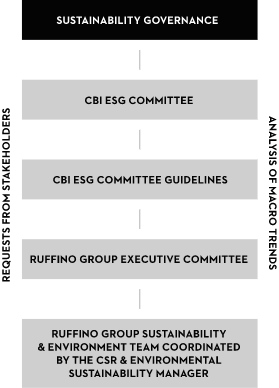
OUR IMPACT: CREATING SUSTAINABLE VALUE
For us, creating sustainable value is a required condition in order to preserve and increase the value of the assets entrusted to us over time. Among these elements we can observe that the land and the vineyard must grow enough grapes to meet the qualitative and quantitative production expectations.
In FY 2022, the economic value generated by the Ruffino Group was 123.93 million euro. In FY 2023, we distributed approximately 98% of the overall value generated to the Group’s priority stakeholder categories.67%
WOMEN
BOARD MEMBERS
98%
ECONOMIC VALUE
GENERATED
Distributed among stakeholder
MAY 2023
UPDATING THE COMPANY CODE
OF CONDUCT AND ETHICS
0
Corruption cases confirmed
in the last three years
100%
Of the board
of directors and employees
who use computers received
training
73%
of employees received training about
Anti-corruption policies and
procedures
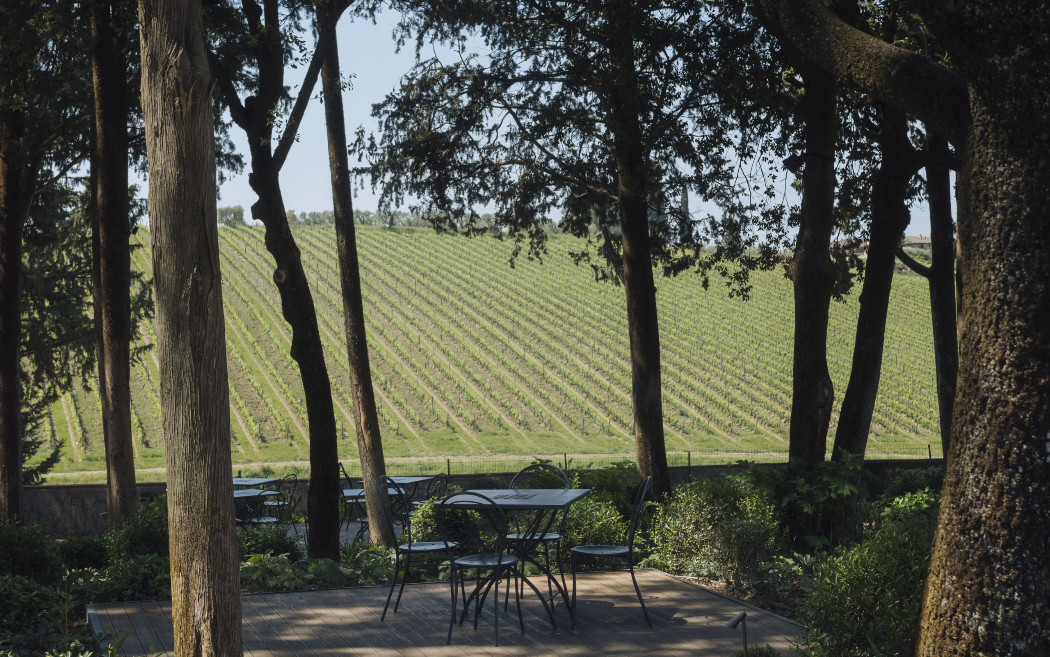
Guardianship
Highlighting the traits of the land, preserving their uniqueness and displaying their character: we take cure of the vines, feeling a responsibility to protect local history and the biodiversity of the land where they grow. Our job is to look after the future of the environment and to stay in sync with nature.
Highlighting the traits of the land, preserving their uniqueness and displaying their character: we take cure of the vines, feeling a responsibility to protect local history and the biodiversity of the land where they grow.
Our job is to look after the future of the environment and to stay in sync with nature.
Guardianship
COMMITMENTS
- Energy management
- Water management
- Preserving biodiversity, soil management and ground use
- Mitigating and adjusting the vines to climate change
SDG





100%
ESTATES BIODIVERSITY
FRIEND CERTIFIED
100%
COMPANY SITES
ISO 14001 CERTIFIED
3
WASTEWATER
TREATMENT PLANTS
3
CONSTRUCTED
WETLANDS
100%
Electricity from
renewable sources
at ruffino SRL
49%
Electricity from
renewable sources
at ruffino estates
-36.5%
waste production vs.
2022
IN SYNC WITH NATURE
IN SYNC
WITH NATURE
of profit and innovating our production practices to build a more responsible future. Environmental sustainability is a key part of continuity, growth and success for the Ruffino Group.
OUR APPROACH TOWARDS A CULTIVATION METHOD WITH A LOW ENVIRONMENTAL IMPACT
RESPECTING RESOURCES
OUR OBJECTIVES FOR RESPONSIBLE GROWTH
efficiency and increasing
the energy supply from
renewables sources
SCOPE 1 E 2
FY 2030: -50%
FY 2050: Carbon neutrality
in line with the EU
Sustainability Goals
PER PRODUCT UNIT
water
increase recycling practices
100%
ESTATES BIODIVERSITY
FRIEND CERTIFIED
3
WASTEWATER
TREATMENT PLANTS
3
CONSTRUCTED
WETLANDS
100%
GROUP SITES
ISO 14001 CERTIFIED
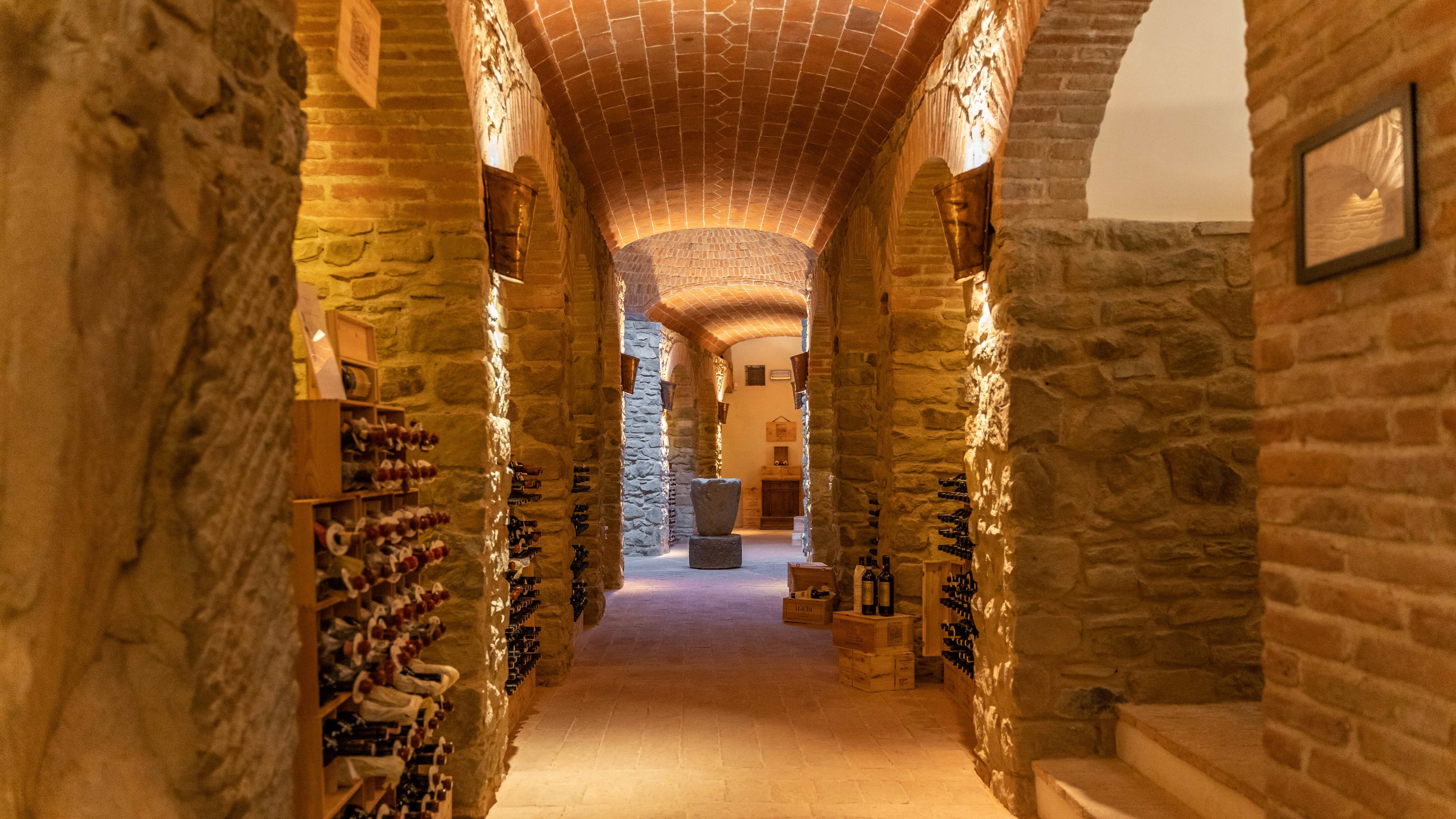
Connections
Our work is inextricably linked to the land, its history and future. We develop lasting connections in the local area with our people, suppliers, clients and community. With this dialog, we build a shared and sustainable future.
Connections
COMMITMENTS
- Employee health and safety
- Customer care and satisfaction
- Product safety and quality
- Made in Italy and tradition
SDG




Results
D&I
strategy applied
> 400,000€
invested in the last 2 years to improve quality
processes
81%
senior managers hired from
the local community
61%
expenditure on suppliers in
Tuscany and Veneto
12
suppliers involved in grape procurement
(73% of total)
55
total training hours focused on Hazard
Analysis and Critical Control Points,
food defense and legislation in 2023
8.1
hours of training per employee on
average
OUR PEOPLE: INVOLVEMENT, INCLUSION, TRAINING AND PROTECTING HEALTH
OUR PEOPLE:
INVOLVEMENT,
INCLUSION,
TRAINING AND
PROTECTING
HEALTH
Our focus on people management can be seen in the selection and training procedures that we do for new employees, regardless of whether they are permanent or temporary
Our focus on people management can be seen in the selection and training procedures that we do for new employees, regardless of whether they are permanent or temporary
255
people
(255 “people”,
240 employees)
39%
of woman present
81%
senior managers
hired from the local
community
66
hires in 2023
1,940
training hours
in 2023
SUPPLY CHAIN: TRANSPARENCY AND SUPPORTING LOCAL COMMUNITIES
Overall, in FY 2023, 78% of purchases were made in Italy and 61% in our local communities of Tuscany and Veneto.
CONSUMERS: QUALITY AND RESPONSIBLE DRINKING
(OUR CONSUMERS)
COMMUNITY AND THE LOCAL AREA: GIVING BACK
| Scope | Aspect | Unit Of Measurement | FY 2023 |
|---|---|---|---|
| Commitment to others | Donations to associations, hospital and charities |
Euro | 36022 |
|
|
|||
| Responsible drinking | Merchandising, study grants | Euro | 12600 |
|
|
|||
| Education, awareness raising through communication activities |
Ruffino Cares activties | Euro | 35000 |
|
|
|||
61%
spending on supplies
from Tuscany and
Veneto
81%
senior managers
hired from the local
community
12
suppliers involved in grape
procurement
100% ORGANIC OR SUSTAINABLE
strategy
Diversity & Inclusion
Projects
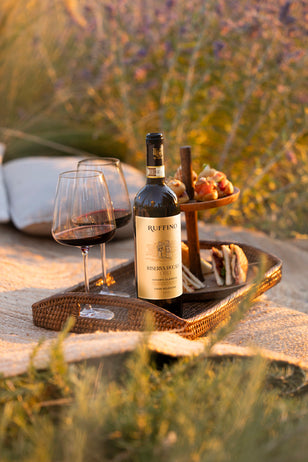
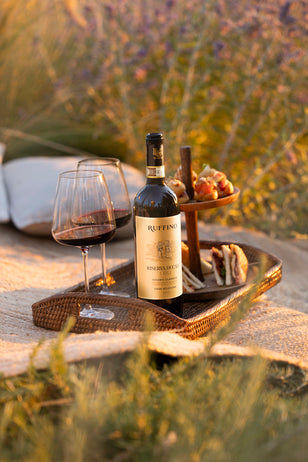
WINE AND SUSTAINABILITY: COMMUNICATING CREATES VALUE
The Gavi Award “La Buona Italia 2023” confirms our dedication to promoting sustainable wine.
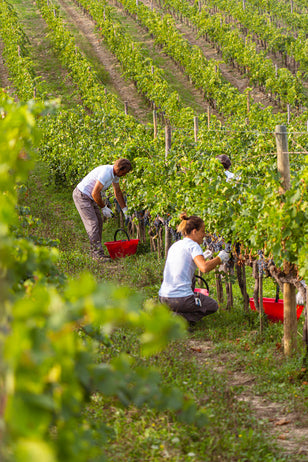

CONVERTING TO ORGANIC AND ORGANIC VINEYARD MANAGEMENT
We have started a process of radical change in the management of the vineyards. The goal is to achieve 100% organic production on the Tuscan estates by 2025.
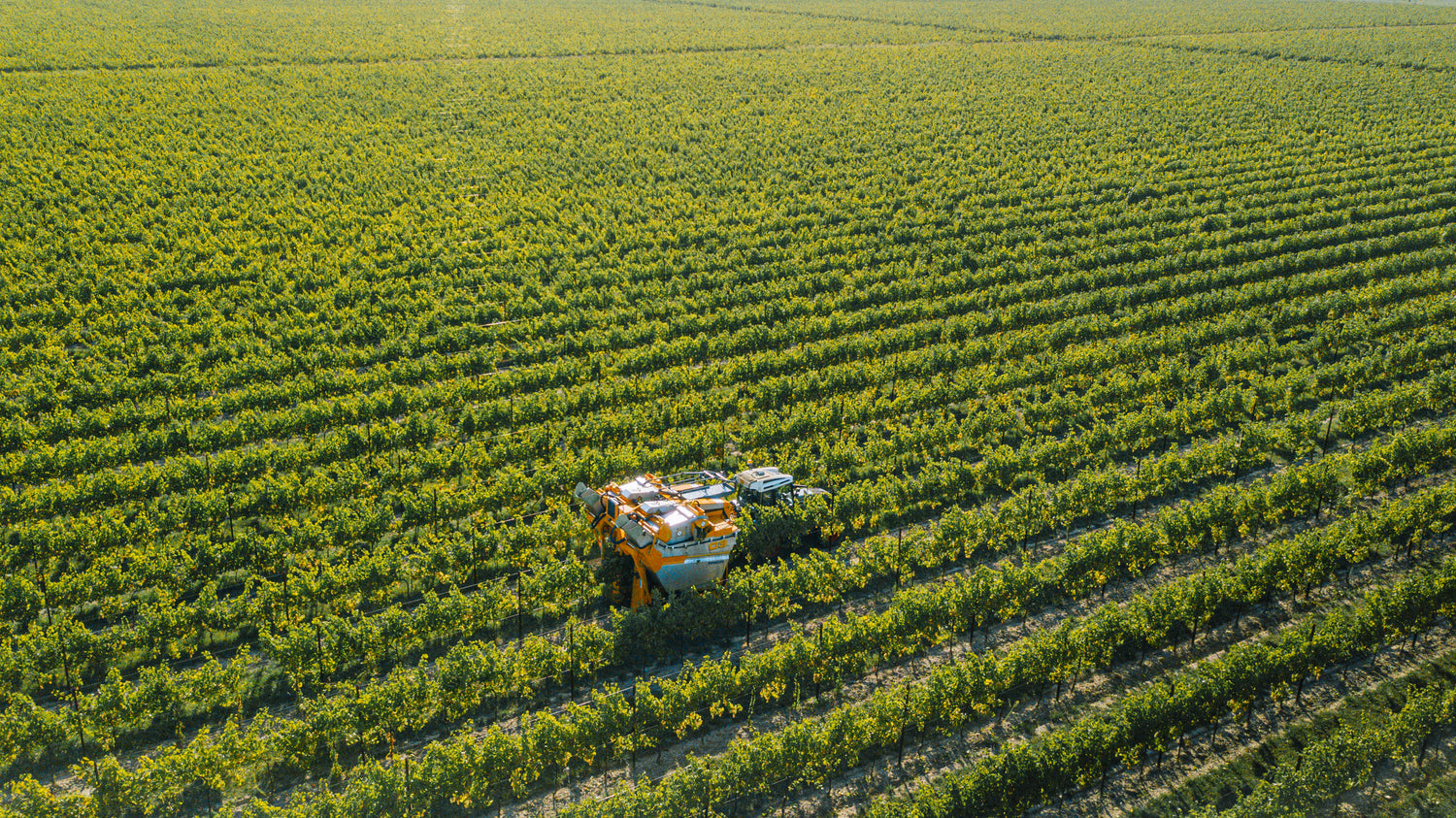
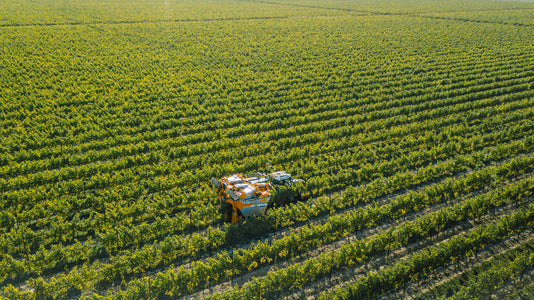
Taking care of the vineyards through nature and technology
We use a network of sensors that monitor the weather and environment, along with a data analysis program, to decrease the need for pesticides when treating vineyard diseases.
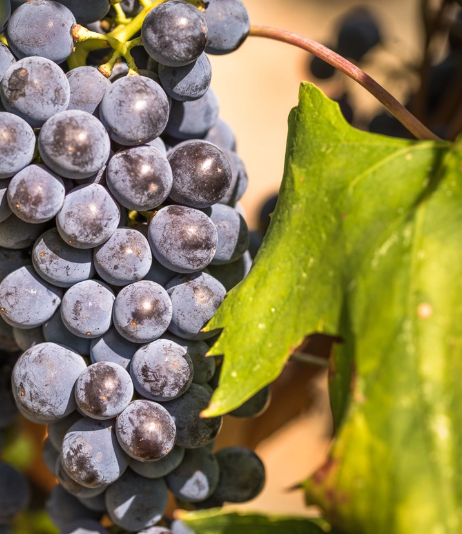
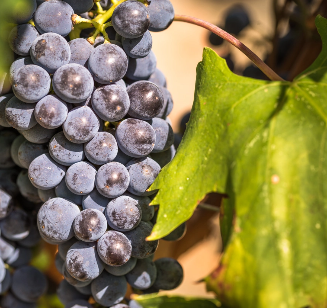
Monitoring flavescence dorée with CREA
The partnership with the Council for Agricultural Research and Economics of Conegliano aims to restrict the spread of widespread in the Triveneto region
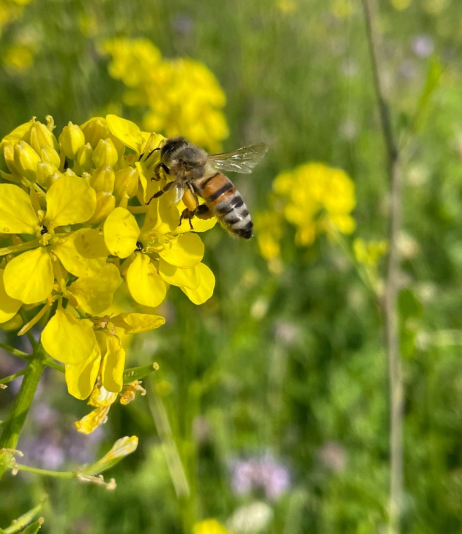
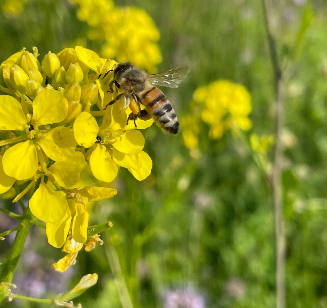
Protecting bees to support biodiversity
From the organic management of vineyards to the production of the high quality honey: the protection of bees for the protection of biodiversity
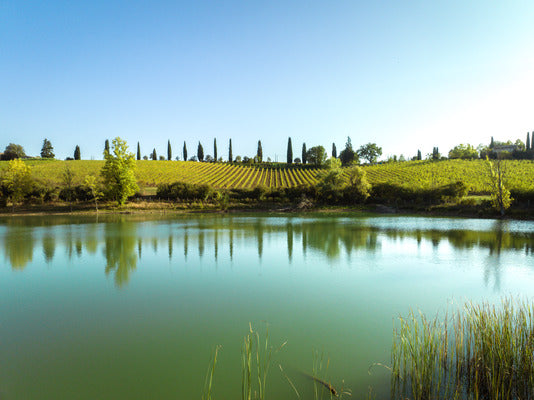
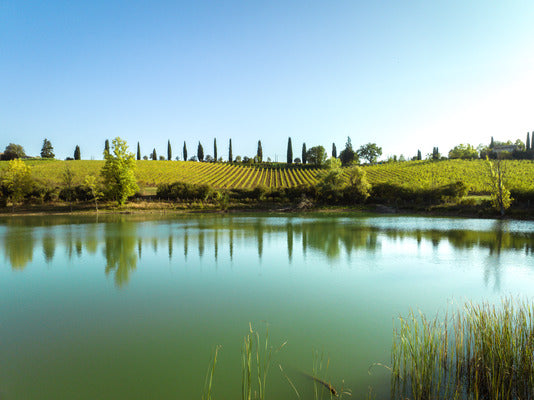
Water basins as shelter for indigenous species
Rushes to create wetlands along canals, hedges and trees as a boundary: we create habitats well-suited to local fauna through careful management
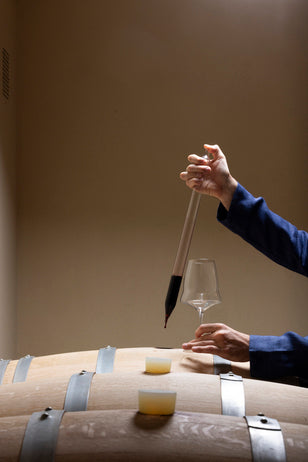
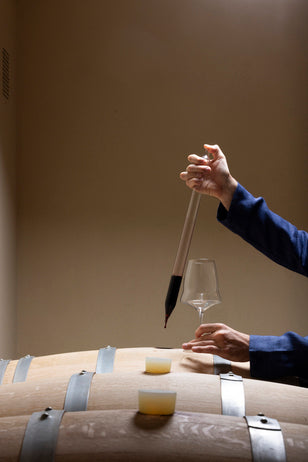
Precision viticulture project
Sustainability, innovation, and quality: more than ten years of managing vineyards with specific plans for each site
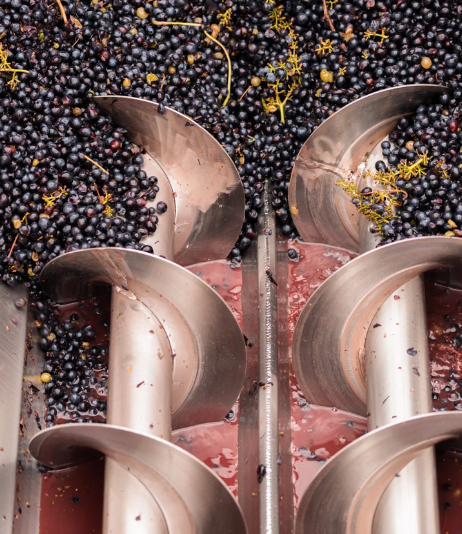
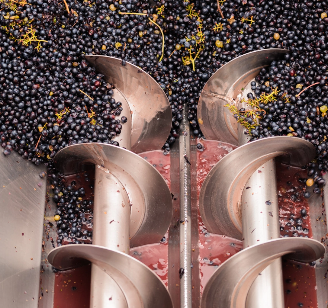
Precision and the fight against waste
We are committed to responsible water usage by implementing advanced farming practices and investing in technology and infrastructure.
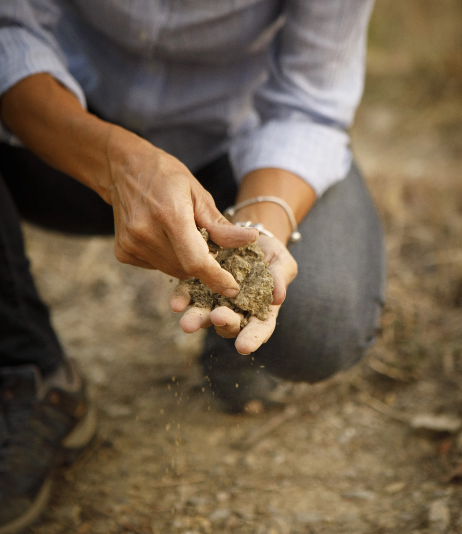
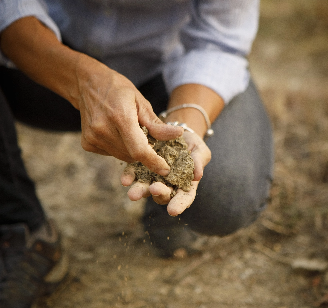
Ruffino and knowledge sharing
Continuous dialogue with the academic world as a source of mutual enrichment and inspiration for constant growth.
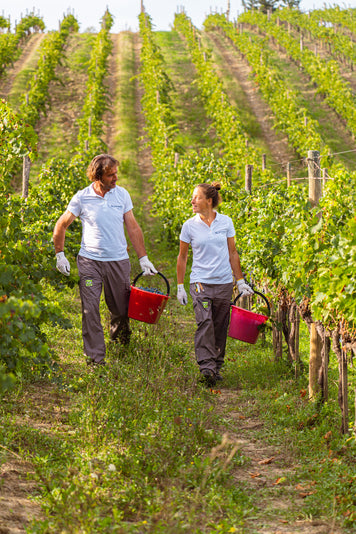
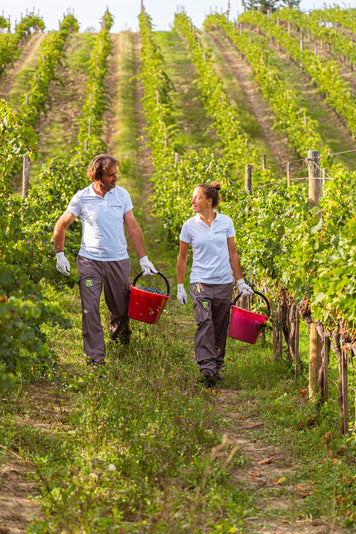
Sustainability training
Specific training sessions allow us to create awareness about the importance and value of our sustainable actions.
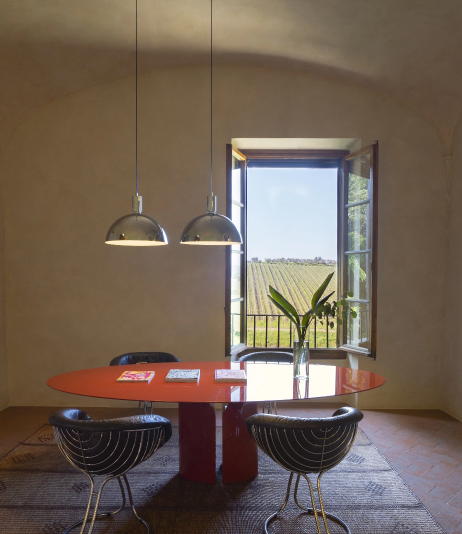
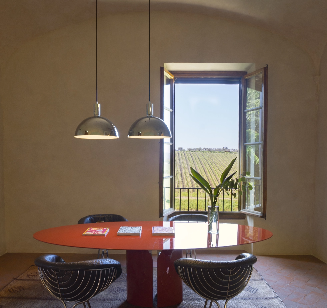
Remote working policy
From emergency measures to good practice: remote working in the pursuit of innovation and flexibility
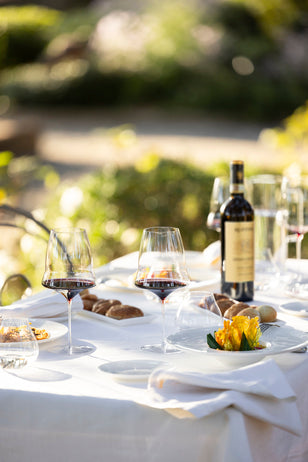
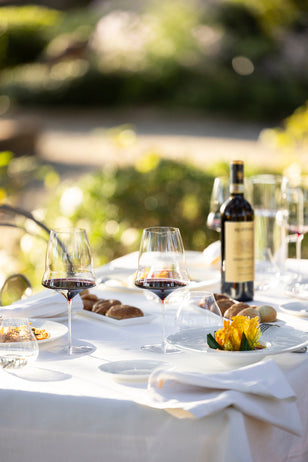
Ruffino & Wine in Moderation
Training courses, communication campaigns and responsible advertising: our commitment to promoting informed drinking
Wine and sustainability: communicating creates value
The Gavi Award "La Buona Italia 2023" confirms our dedication to promoting sustainable wine
In November 2022, we were honored with the Gavi Award "La Buona Italia 2023" for our efforts in spreading the word about sustainable wine. What got us this recognition was our ability to share our dedication to being environmentally friendly, promoting responsible consumption, supporting initiatives that give back to the community, being responsible as a company, and combatting gender inequality.
Sustainability is a major part of our plan for the future. Making sure people know about our commitment to sustainability is essential for two reasons: first, it helps us show that we're leading the way in responsible growth, and second, it helps create a culture of sustainability that everyone can share.
CONVERTING TO ORGANIC AND ORGANIC VINEYARD MANAGEMENT
We have started a process of radical change in the management of the vineyards. The goal is to achieve 100% organic production on the Tuscan estates by 2025.
The process of converting our estates to organic agriculture began in FY 2016. In FY 2017, we removed herbicides on the Poggio Casciano and Greppone Mazzi estates, replacing them with mechanical actions. Insecticides were replaced by biological fighting against the main insects that attack the vines.
In FY 2019, following the natural evolution of the practices implemented in estate management, we structured and defined an organic conversion process in Tuscany that aims for 100% organic production by FY 2025.
To make this happen, we had to make a radical change in vineyard management. We did this by deeply understanding the vineyards, including their variations in strength and the local climate.
Continuous monitoring is essential to ensure the required protection of the vineyard against disease and parasites. The use of cultivation methods with a reduction in chemical products requires the use of specific agricultural machinery and timeliness in operational choices to guarantee maximum efficiency and a minimum impact on the land.
- no herbicides
- organic manure
- protection against the main vine diseases using solely copper, sulfur and products of natural origin
- alternative means for the fight against the main insects, including the “sexual confusion” technique
Taking care of the vineyards through nature and technology
We use a network of sensors that monitor the weather and environment, along with a data analysis program, to decrease the need for pesticides when treating vineyard diseases.
To reduce chemical products to prevent and treat disease in the vineyard, we also use weather and environmental sensors that collect forecast data such as temperature, air humidity, rainfall, leaf wetness and wind speed, in order to provide a timely and balanced defense against disease with a lower impact on the environment.
This process is helped by a Decision-Making Support System (DSS), software that gathers, organizes and integrates field information, providing support and alerts in order to make informed vineyard management decisions.
LESS WASTE, MORE RECYCLING
WE FOCUS ON INCREASE THE REUSE OF MATERIALS THROUGH AN APPROACH THAT CONSIDERS THE ENTIRE PRODUCT AND WASTE LIFECYCLE. WE ALSO INVOLVE OUR SUPPLIERS IN THIS CHALLENGE.
We know that waste production still cannot be removed entirely from our activities, so we aim to reduce waste production to a minimum and, where this is not possible, to recycle as much as we can.
In particular, our management foresees, in addition to reinforcing waste prevention measures, the introduction of an approach that takes into account the entire lifecycle of products and materials to increase the amount of retrieved and reused materials, giving them back economic value, also due to the practical application of the waste hierarchy set out in the European Directive.
We share the principles of prevention, preparation for reuse, treatment and recycling internally in order to clarify the importance of these concepts, and we involve all colleagues and contractors in the correct management of waste.
In particular, for several years now we have been committed to rethinking our products by implementing eco-design projects that reduce the impact of our materials and packaging. In addition to making a more efficient use of raw materials, we have produced an end product that reassures end consumers that no component must be disposed of in the undifferentiated waste.
- 100% of packaging is fully recyclable for end consumers
- 60% of the cardboard in our packaging is FSC-certified in FY23, with the target of becoming 100% by FY25
- 100% of wooden boxes will be PEFC-certified by 2028
- 300 tons of glass used in FY23 compared to the previous year, with a further 6% reduction in average weight by FY24, saving another 600 tons of glass
Monitoring flavescence dorée with CREA
The partnership with the Council for Agricultural Research and Economics of Conegliano aims to restrict the spread of widespread in the Triveneto region
The partnership continues with CREA-Viticoltura Enologia di Conegliano, which started in FY 2019, to monitor flavescence dorée, a disease that causes vines to struggle to grow and grapes not to ripen.
The work carried out between the center and our Ca’ del Duca estate enables us firstly to monitor any infestation and then to direct measures taken in the vineyards.
This allows us to pinpoint any infected vines that have to be removed to contain the spread. This partnership enables the center to obtain more information and knowledge about the disease in order to develop statistics about its evolution in the area.
Protecting bees to support biodiversity
From the organic management of vineyards to the production of the high quality honey: the protection of bees for the protection of biodiversity
In order to preserve and protect our biodiversity, we have been committed to safeguarding bees since 2008, first in Tuscany, on the Gretole estate, through the installation of 2 hives, before growing them over the years, oscillating between 10 and 15 hives, depending on the seasons.
In 2021, we started a similar project in Veneto on our Ca’ Del Duca estate, initially with 3 hives, which grew to 6 during 2022.
Due to our organic vineyard management, we protect bees and extract honey of the finest quality. In Tuscany, we manage honey production by means of a third-party company, while in Veneto we produce our own honey and make it available to our employees.
Bees are a very important indirect indicator of the health of our ecosystems and how our habitat and biodiversity protection strategy is working.
Water basins as shelter for indigenous species
Rushes to create wetlands along canals, hedges and trees as a boundary: we create habitats well-suited to local fauna through careful management
To protect biodiversity and support the habitats of native species, we have designated a large area, by Ruffino’s waterways, for the creation of wetlands with the planting of rushes along the edges of the canals. Moreover, as a boundary with neighboring lots, we have planted hedges, such as viburnum and wild apple trees.
This flora is managed in a “wild” way and only receives human intervention occasionally in order to support the local fauna and help to strengthen the resilience of the local habitats
Precision viticulture project
Sustainability, innovation, and quality: more than ten years of managing vineyards with specific plans for each site
Precision agriculture is an agricultural management strategy based on observation, data measurement and response to temporal and spatial variability in order to improve the sustainability of agricultural production. In our case, this tool enables us to conduct site-specific viticulture, i.e. it allows us to manage variability in the vineyard due to varying soil characteristics and their position of hillsides with the aim of distributing fertilizers and conducting the work needed to achieve the best balance between vegetation and production, as well as analysis to grow the best possible grapes on that site.
Starting in 2010, we decided to make the most of the potential of precision agriculture to best manage our vineyards, also from the point of view of a deeper and more authentic choice of environmental sustainability, protecting biodiversity and reducing the impact of agricultural activities. This decision was flanked with the choice to convert to organic farming. Starting in 2011, in our Chianti Classico vineyards, we obtained the first maps with the NDVI (Normalized Difference Vegetation Index) and related vigor maps of the vineyards down to details of the single rows. Combined with GIS technology and integrating control technology on the machines, these maps allowed machinery to be adopted for “variable rate” fertilizing to distribute nutrients based on the actual needs of the vineyard area.
This approach was developed further with Ruffino’s participation in the “Kattivo” working group in 2019 to distribute a technological kit, which when applied to traditional atomizers, allows pesticides to be dispersed in variable amounts. The amount of vegetation to be treated is read instantaneously by the machine with ultrasound technology. The technique, which is still experimental, has allowed pesticide waste to be reduced by up to 30%. Precision viticulture and automation are also seen in successful operational solution, such as automated selective harvesting. We are now equipped with a mechanical harvester that has a automatic grape selection system that decides, based on a quality map of the vineyard, to divide the grapes of different quality levels into two categories and two different loading hoppers.
The results are remarkable 13 years after embarking on this approach. Managing in a site-specific way means reducing waste (correct amounts of fertilizers and pesticides), respecting and raising the quality of the grapes and ensuring a longer life of the vineyard.
Precision and the fight against waste
We are committed to responsible water usage by implementing advanced farming practices and investing in technology and infrastructure.
Water availability and its responsible use are key issues for the wine industry. All our production processes require the use of water and we are aware of its value as an invaluable and limited resource.
Investments, technology, innovation and continuous monitoring are the pillars of our water management policy that aims to reduce waste and overcome the challenges of climate change.
In recent years, we have increased the water efficiency of the vineyards on our estates by focusing, on one hand, on precision agriculture practices and implementing technological tools that were previously unavailable, and, on the other hand, consolidating our irrigation capacity by building rainwater collection basins.
A network of sensors enables us to check the actual needs of the vines and to conduct drop irrigation, which optimizes water use, allowing 50% savings of the water usually used, and ensures that the needs of the plants are met.
While a precision irrigation system is already 80% functional on our estates in Veneto, the systems are being strengthened in Tuscany, which will result in a gradual and sizable increase in the irrigated surface areas.
60% of the irrigation network in the Tuscan vineyards will be powered by rainwater by 2025. Three rainwater collection basins are already operational and three more will be implemented in the coming years.
Ruffino and knowledge sharing
Continuous dialogue with the academic world as a source of mutual enrichment and inspiration for constant growth.
Being present and involved in the activities of local higher education institutes is a privilege and an opportunity. The interaction among students, academics and the company has proven – and continues – to be a source of mutual learning and enrichment. We open our doors to students from various faculties with the aim of sharing our hands-on exprience as well as theoretical notions.
- The Master VENIT Viniculture and Enology of the University of Piacenza benefitted from the expertise
and know-how of our agronomists; - The Master Vinifera of the University of Milan was hosted for a week at our Poggio Casciano estate
for the Sustainable Viticulture course; - A student as part of the UIV and University Ariel di Samaria (Israel) agreement did a week’s internship at our estates;
- The Master’s in Marketing and Sustainability Communication organized by Oregon University held a lesson
at our Poggio Casciano estate.
In the future, our aim is to intensify these important and profitable relationships with scholars and future operators in our field of knowledge and activities, especially at this juncture when the focus is on learning to relate to the land according to sustainable principles and criteria, values that Ruffino shares and is happy to apply and communicate in every instance.
Sustainability training
Specific training sessions allow us to create awareness about the importance and value of our sustainable actions.
The principles and values linked to corporate social responsibility play a fundamental role in all activities. For us, it is essential that our employees are aware of these issues, which is why we have implemented specific training sessions.
In detail, these sessions aim to examine how Ruffino works in an ever-changing context, exploring the actions already taken, the projects that are underway and goals for the future.
The aim is to promote and perpetuate good practices in an increasingly informed way.
The work that began in the past calls for information activities involving the entire workforce. Sustainability policies, goals and projects for the Ruffino Group and CBI are set out in internal communications and targeted meetings.
Starting in FY23, our goal is to involve 100% of employees in training and information sessions regarding sustainability. We strive to become a positive pioneer for the entire community in this field.
Remote working policy
From emergency measures to good practice: remote working in the pursuit of innovation and flexibility
Having positively evaluated the implementation of remote working during the pandemic, in April 2022 we officially introduced remote working through an agreement stipulated with the internal worker representative.
Every employee who chose this working method can now work remotely up to two days a week. This decision not only provides greater working flexibility, facilitating the work-life balance, but it is also proving to be an effective strategy to attract new professional talent.
Ruffino & Wine in Moderation
Training courses, communication campaigns and responsible advertising: our commitment to promoting informed drinking
As an advocate of social responsibility in the wine industry, Wine in Moderation (WIM) provides information and resources to trade professionals, so that they in turn present wine responsibly. The aim is to inspire consumers to promote wine culture in a healthy, positive and sociable way.
The program encourages moderate consumption through training courses, communication campaigns, communicative standards for informed wine advertising and scientific studies. We have actively supported Wine in Moderation for years.
We have worked side by side with WIM since FY 2015 and in FY 2020, Ruffino S.r.l. became an Ambassador Company within the movement. To further underline our commitment, the President and CEO of the Ruffino Group is President of Wine in Moderation.
- Choosing a selection results in a full page refresh.
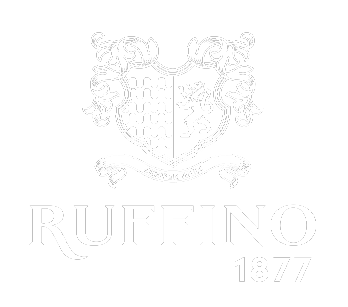
We support the fight against underage drinking and drunk driving. To learn more visit www.responsibility.org. Please enjoy our wines responsibly. ©2024 Ruffino Import Company, Rutherford, CA.
By clicking enter, you acknowledge our Privacy Notice & agree to our Website User Agreement.

We support the fight against underage drinking and drunk driving. To learn more visit www.responsibility.org. Please enjoy our wines responsibly. ©2024 Ruffino Import Company, Rutherford, CA.
By clicking enter, you acknowledge our Privacy Notice & agree to our Website User Agreement.
